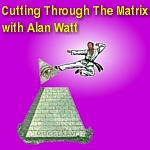
May 19, 2024 "Cutting Through the Matrix" with Alan Watt --- Redux (Educational Talk From the Past): "Liberty is an Inside Job"

Cutting Through the Matrix with Alan Watt Podcast (.xml Format)
Deep Dive
Why does Alan Watt emphasize that liberty is an inside job?
Alan Watt believes that true liberty starts within the individual. It requires self-analysis, understanding one's motivations, and living by one's beliefs. External systems or leaders cannot grant freedom; it must be cultivated internally through personal growth and self-awareness.
What is Alan Watt's view on the role of money in society?
Alan Watt views money as the root of all evil and the first con game ever invented, alongside priesthoods. He argues that money disrupts natural barter systems and allows privileged families to rise above others, perpetuating inequality and control over the masses.
Who was Thomas Paine, and why is he significant in revolutionary history?
Thomas Paine was a writer and journalist who played a key role in the American Revolution. His pamphlet 'Common Sense' influenced the Declaration of Independence. However, his later work, 'The Age of Reason,' which critiqued organized religion, alienated many and led to his decline in popularity.
What is the significance of James H. Billington's book 'Fire in the Minds of Men'?
James H. Billington's book explores the origins of revolutionary faith, tracing how modern revolutionaries are as committed as religious believers. It highlights the belief in creating a perfect secular order through the overthrow of traditional authority, drawing connections to Freemasonry, occult symbolism, and revolutionary movements.
What is the Sufi story shared in the podcast, and what does it symbolize?
The Sufi story tells of a man who hoards water before a global change that drives people mad. He initially resists drinking the new water but eventually succumbs to loneliness. It symbolizes the struggle of maintaining individuality and sanity in a world that has gone mad, emphasizing the importance of inner conviction.
What does Alan Watt say about the role of psychopaths in society?
Alan Watt argues that psychopaths, who lack empathy and compassion, often rise to positions of power in business, politics, and royal families. They exploit systems and lead revolutions, often leaving people worse off. He suggests that psychopathic traits are selectively bred and used to control populations.
What is Alan Watt's perspective on the New Age movement?
Alan Watt criticizes the New Age movement for promoting positive thinking without addressing historical or systemic issues. He believes it disarms people by encouraging them to ignore real problems, making them more compliant with oppressive systems.
What does Alan Watt suggest as a way to resist oppressive systems?
Alan Watt advises against direct confrontation, which oppressive systems expect. Instead, he recommends subtle strategies like withholding tax money, demanding accountability, and psychologically evaluating public servants to expose psychopathic traits. He emphasizes the importance of individual awakening and self-education.
What is the significance of the Declaration of Independence according to Alan Watt?
Alan Watt acknowledges the Declaration of Independence as a foundational document but argues that its principles are meaningless unless people internalize and live by them. He warns against deifying leaders or documents, emphasizing the need for active participation in maintaining liberty.
What does Alan Watt say about the role of lawyers in society?
Alan Watt criticizes lawyers for obfuscating the law and making it inaccessible to ordinary people. He believes they serve the elite by creating confusion and subservience, comparing their role to that of the devil in 'The Devil's Advocate,' where lawyers are portrayed as tools of control.
Shownotes Transcript
--{ "Liberty is an Inside Job"}-- Letters from listeners - Alan Watt as a guest on American Awakening. Why was he at odds with the host? - What is money? - Who was Thomas Paine? - What is the Librarian of Congress? - James H. Billington's book, Fire in the Minds of Men: Origins of the Revolutionary Faith - Freemasonry and the Occult in revolutionary movements - A Sufi story from Tales of the Dervishes - Chemtrails - Predictive Programming - Positive Thinking - New Age - Understanding of History - What is Purpose of Life? - Money is the Root of All Evil - Deification of Leaders and Constitutional Papers - New Testament: "Let the dead bury the dead." - Psychopaths respect Power - Alan: "You don't win any battle until you've conquered yourself." Change Starts within the Individual. "Who are you?" "What is life about?"